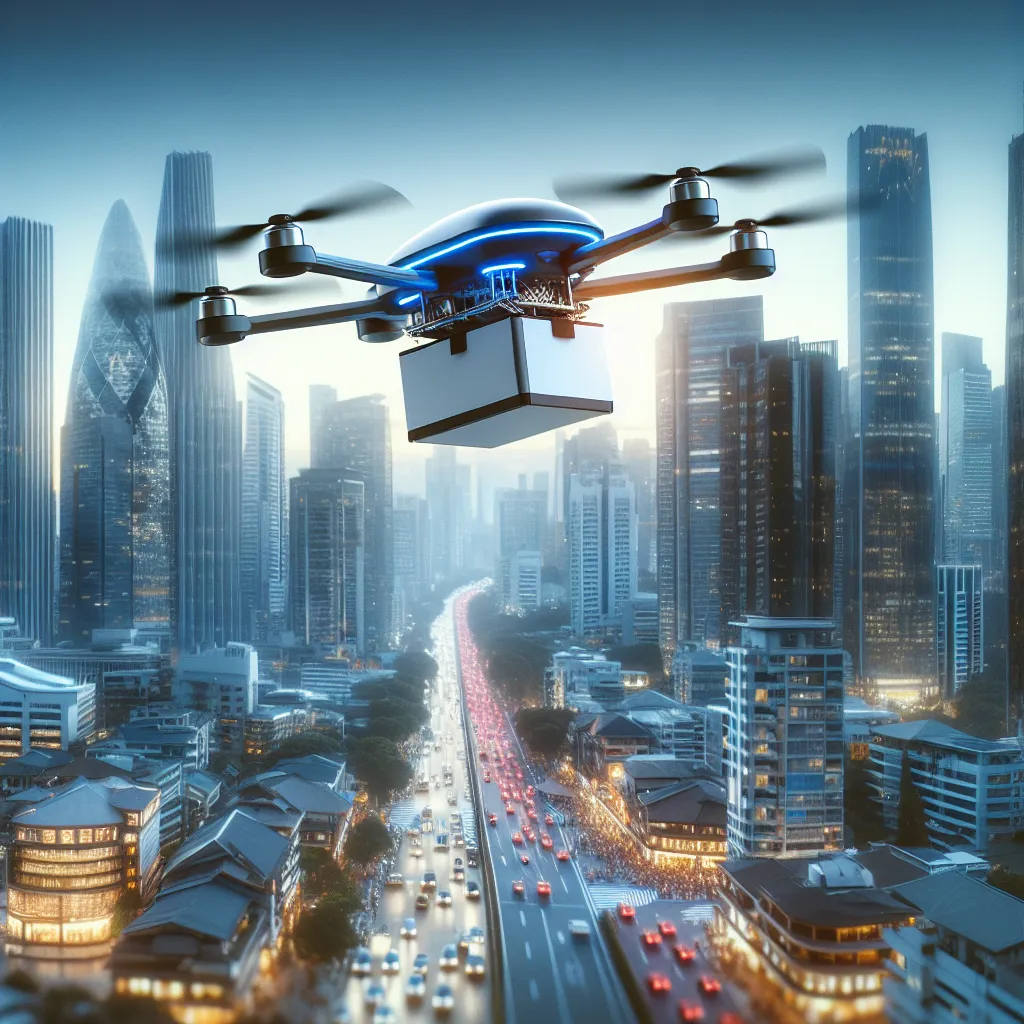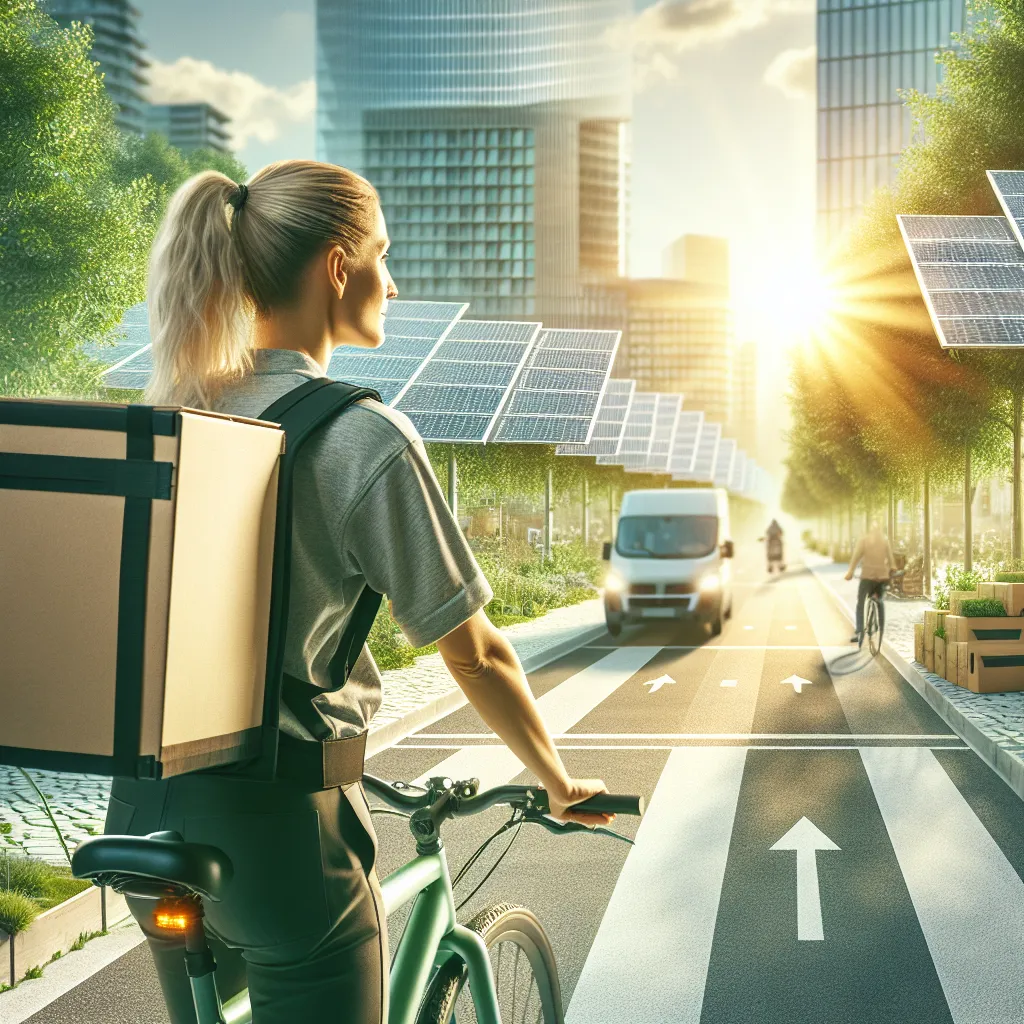The article covers three key aspects of sustainable practices in courier operations: implementing electric delivery vehicles, minimizing packaging waste, and the role of renewable energy in reducing carbon emissions. It highlights the benefits of transitioning to electric vehicles, such as lower carbon emissions and operating costs, and discusses strategies for reducing packaging waste, including right-sized packaging, reusable options, and eco-friendly materials. Additionally, it emphasizes the importance of integrating renewable energy, such as solar and wind power, into courier operations to mitigate carbon emissions and combat climate change. Overall, the article provides valuable insights into sustainable practices essential for courier companies, making it a compelling read for those interested in environmentally friendly logistics solutions.
Category: courier
The courier category encompasses a wide range of services that specialize in timely and secure delivery of parcels, documents, and goods. Couriers operate on various scales, from local businesses providing same-day delivery to global companies offering international shipping solutions. With the rise of e-commerce, courier services have become an essential link in the supply chain, fulfilling the growing demand for fast and reliable delivery options. From traditional courier companies to modern app-based delivery services, this category continues to evolve to meet the dynamic needs of businesses and individual customers.
In the courier category, customers can expect a diverse selection of delivery options, including express shipping, next-day delivery, and specialized services such as temperature-controlled transport or fragile item handling. Couriers often leverage advanced tracking technology and real-time updates to provide transparency and peace of mind throughout the delivery process. Whether it’s a small package or a large cargo shipment, the courier category offers a range of solutions to ensure efficient and dependable delivery for businesses and consumers alike.

Sustainability Practices in Courier Companies
The article “Implementing Sustainable Delivery Solutions: A Case Study of Courier Companies” delves into the increasing focus of courier companies on sustainable practices to minimize their environmental impact. It highlights various initiatives, such as the adoption of electric or hybrid vehicles, route optimization software, and the use of alternative packaging materials, showcasing proactive measures being taken. Moreover, the article “The Role of Technology in Promoting Eco-Friendly Logistics in Courier Services” underscores the significant role of technology in driving sustainability within the courier industry. It emphasizes the utilization of advanced technologies like route optimization software, electric vehicles, and real-time tracking systems to enhance efficiency, reduce energy consumption, and minimize emissions. Overall, these articles offer a comprehensive insight into the innovative strategies and technologies employed by courier companies to promote eco-friendly logistics and advance sustainable delivery solutions.

The Future of Last-Mile Delivery Services
The article “Emerging Technologies Revolutionizing Last-Mile Delivery” highlights the transformative impact of innovations in last-mile delivery services, such as drone delivery, autonomous vehicles, and IoT-connected devices. The use of drones and autonomous vehicles promises unprecedented efficiency, speed, and cost-effectiveness in delivering packages, while reducing the environmental impact of traditional delivery methods. The integration of IoT technology enhances the transparency and efficiency of last-mile delivery, offering real-time package tracking and route optimization. The article underscores that these emerging technologies are revolutionizing the last leg of the supply chain, delivering unprecedented speed, efficiency, and reliability to the delivery process. Moreover, the article “Sustainability in Last-Mile Logistics: Challenges and Solutions” addresses the significant challenges faced by last-mile delivery services in achieving sustainability, emphasizing the environmental impact of traditional delivery vehicles and the need for efficient route utilization. It also presents promising solutions, such as alternative eco-friendly vehicles and advanced technologies for route optimization and delivery scheduling to mitigate the environmental impact and improve the long-term viability of last-mile delivery services.

The Impact of Technology on Courier Services
In recent years, technology has profoundly revolutionized the courier industry, introducing innovations such as advanced tracking systems, route optimization algorithms, and automated sorting processes. These advancements have led to improved customer experiences, streamlined operations, and increased efficiency within the industry. The integration of GPS tracking, barcoding, and sophisticated software systems has provided customers with real-time updates on their packages, enhancing transparency and supply chain management. Furthermore, the implementation of automation and robotics has accelerated package processing, reduced human error, and contributed to faster turnaround times. Additionally, data analytics and predictive algorithms have optimized delivery routes, resulting in significant cost savings and reduced fuel consumption. Overall, technology has ushered in a new era of efficiency, reliability, and environmental sustainability in courier services, and its continuous advancement promises further innovations for the industry.

Challenges and Opportunities in the Courier Industry
The rise of e-commerce has greatly impacted the courier industry, presenting both challenges and opportunities. As online shopping continues to soar, there is an increasing demand for efficient courier services to handle the higher volume of parcels and meet evolving customer expectations for faster delivery. This surge in e-commerce activities has spurred a significant transformation in the industry, necessitating companies to adapt to the changing landscape. However, amidst these challenges, the e-commerce boom has also created new opportunities for courier companies to capitalize on specialized services and technological advancements. The adoption of innovative solutions, such as same-day delivery and automated sorting systems, has the potential to revolutionize the logistics landscape, ultimately enhancing efficiency, reducing costs, and minimizing environmental impact. The future of the courier industry depends on its ability to embrace sustainability, with the integration of electric vehicles, renewable energy sources, and paperless technologies among the key solutions to minimize the industry’s environmental footprint. Readers are encouraged to delve into the full article to explore the comprehensive impact of e-commerce on the courier industry and the growing necessity for sustainable solutions to drive its future growth.

